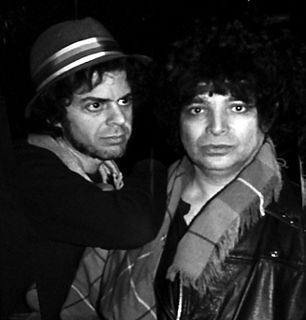A Quote by KRS-One
Record companies feel they are the culture. Hip-hop has to begin to define, protect, and promote itself, and that's why we founded the Temple.
Related Quotes
I am trying to get folks outside the hip-hop culture to understand why, despite the negatives, young people find hope and refuge in hip-hop. I'm hoping that young people immersed in the culture will work harder to capitalize on the possibilities for great social change that hip-hop represents as a national unified cultural youth movement.
This is more in regards to celebrities. What we've got to understand is that we are the influencers of the hip-hop culture, the black culture. We are the way out, you feel what I'm sayin'? As far as who we look to and where we get stuff from - hip-hop culture is influencing the world, really, but especially the black communities.
In this time, we incorporate money and media, and it's split up like apartheid, where when you say "hip-hop," you think just rap records. People might have forgot about all the other elements in hip-hop. Now we're back out there again, trying to get people back to the fifth element, the knowledge. To know to respect the whole culture, especially to you radio stations that claim to be hip-hop and you're not, because if you was a hip-hop radio station, why do you just play one aspect of hip-hop and rap, which is gangsta rap?
To me, that's the biggest problem with hip-hop today is the fact that everyone believes that all of hip-hop is rap music, and that, when you say "hip-hop," it's synonymous with rap. That when you say "hip-hop," you should be thinking about breakdancing, graffiti art, or MCing - which is the proper name for rap - DJing, beat-boxing, language, fashion, knowledge, trade. You should be thinking about a culture when you say, "hip-hop.".
I think that hip-hop should be spelled with a capital "H," and as one word. It's the name of the culture, and it's the name of the identity and consciousness. I think hip-hop is not a product, but a culture. I think rap is a product, but when hip-hop becomes a product, that's slavery, because you're talking about people's souls.
After many years of hip-hop as a nation we should have the sophistication to accept that their are distinctions between the corporate manifestation of hip-hop, sold as a commodity and package with sensational race, sex and violent imagery, and the hip-hop culture that kids are living everyday at a local level, which often doesn't dabble in that terrain.






























